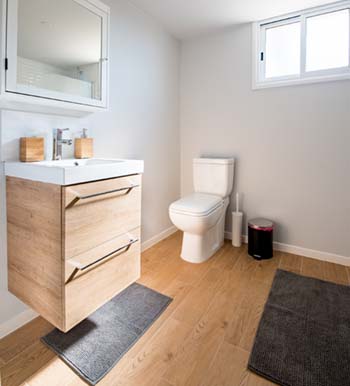Heat Can Help in Hurricane Aftermath
September 1, 2019
Hurricane Dorian is barreling toward Florida with the looks of being a major threat to parts of the southern East Coast. Hurricanes leave catastrophic and costly damage behind them. In the aftermath of a storm, or even something as relatively common as a backed up sewer pipe, flooded basement, or overflowing toilet, Armor & Shield offers a solution that can save the structural integrity of a home by drying it out and killing wood-destroying organisms and— often most importantly!— other microbes.
In 2017, there were 16 separate billion-dollar or greater climate events, including hurricanes Maria, Harvey, and Irma, with water damage from rains and flooding being a major cause of the destruction. Even if a home is left intact post hurricane, structural damage from the effects of water will eventually destroy a property if left untreated.
 According to the EPA, along side the damage to your home, flood waters can also affect your health. If your property remains wet for more than two days, mold can flourish causing adverse health effects, including allergic reactions. Flood water typically also contain other potentially harmful microorganisms, such as bacteria or chemicals. These flood waters are microbially very similar to a sewer backup or an overflowing toilet’s effluence— it’s all bad news!
According to the EPA, along side the damage to your home, flood waters can also affect your health. If your property remains wet for more than two days, mold can flourish causing adverse health effects, including allergic reactions. Flood water typically also contain other potentially harmful microorganisms, such as bacteria or chemicals. These flood waters are microbially very similar to a sewer backup or an overflowing toilet’s effluence— it’s all bad news!
Armor & Shield offers a solution that could save the health and property of those residing in a structure after a flood event. The heaters we use to kill bed bugs and other insects can help.
Disinfection is an added benefit of drying a structure after dirty water damage. Whereas submerged contents of a structure may be a total loss, treating the frame and subflooring of a building with heat will kill bacteria, mold, and other dangerous organic contaminants. Structural drying with Armor & Shield equipment may kill most organisms living in the interior spaces we inhabit. In the laboratory, Stachybotrys chartarum, also known as toxic mold, is killed in 30 minutes of 140°F (Domsch, 1993, pg. 745). E. coli rarely survive beyond 10 minutes of 150°F (Padhye and Doyle, 1992). Hantavirus is rendered inactive with exposures of 30 minutes of 140°F (Manual of Hemorrhagic Fever and Hantavirus Pulmonary Syndrome. WHO. p. 196).
Oklahoma City doesn’t get hit by hurricanes nearly as often as Florida an other parts South of us, but water damage is still a common occurrence. If you are in an area prone to repeated flooding, or own mutli-unit structures in a flood zone, having a relationship with Armor & Shield might be the right move. Call us at 405-698-6090 to find out more how we can help you in the aftermath of a dirty water event: be it a hurricane or a just burst pipe. In the event you never experience water damage, we know all your bed bugs and other insects will be dead.
Don’t take our word for it
The guy that owns this place is so amazing my water went out and I I have 7 month old babies at home and him and his family was amazing and brought me some water and wipes for me to take care of my babies this guy and his family has a big heart and I'm so grateful for them.
 Robin Hutchinson
Robin Hutchinson
5 Stars: ★ ★ ★ ★ ★
February 21, 2021

 According to the EPA, along side the damage to your home, flood waters can also affect your health. If your property remains wet for more than two days, mold can flourish causing adverse health effects, including allergic reactions. Flood water typically also contain other potentially harmful microorganisms, such as bacteria or chemicals. These flood waters are microbially very similar to a sewer backup or an overflowing toilet’s effluence— it’s all bad news!
According to the EPA, along side the damage to your home, flood waters can also affect your health. If your property remains wet for more than two days, mold can flourish causing adverse health effects, including allergic reactions. Flood water typically also contain other potentially harmful microorganisms, such as bacteria or chemicals. These flood waters are microbially very similar to a sewer backup or an overflowing toilet’s effluence— it’s all bad news!



